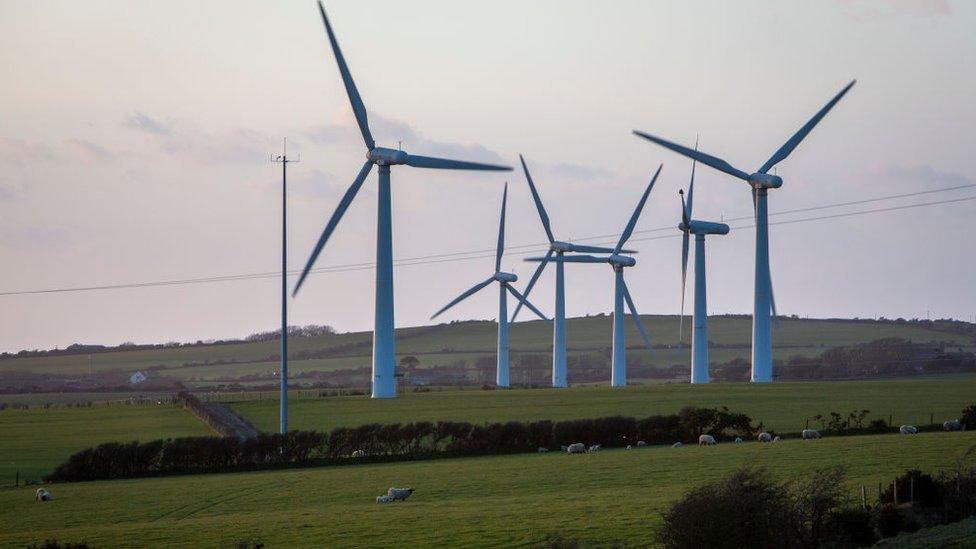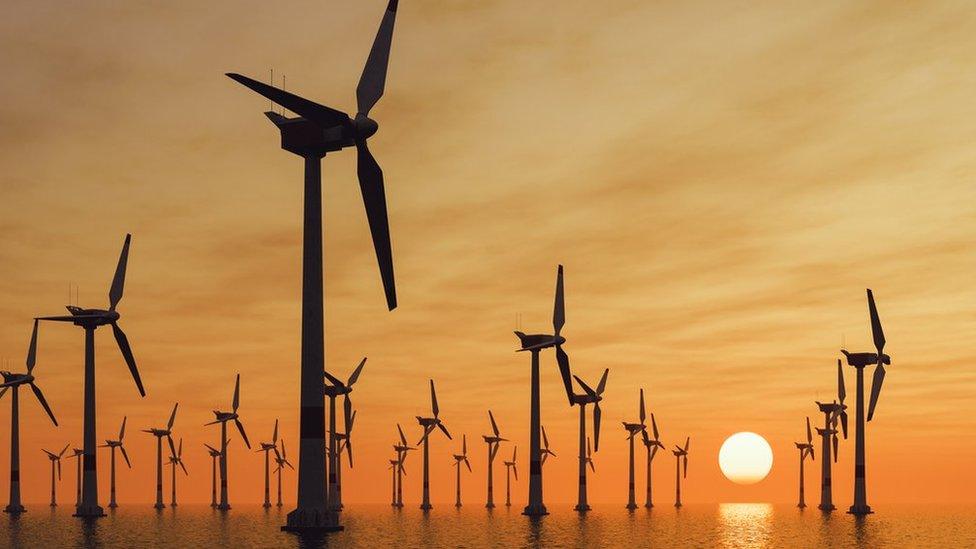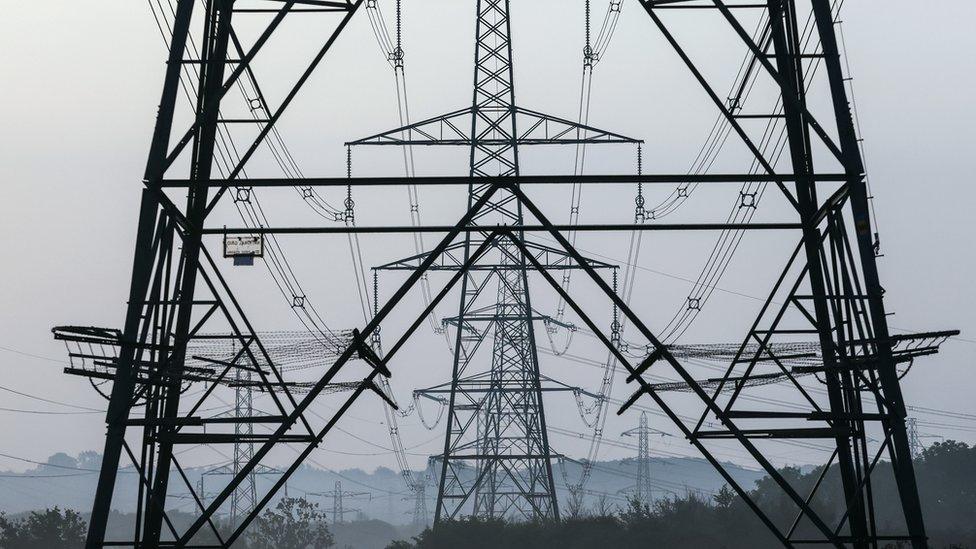Rishi Sunak eases onshore wind farm rules as Tory MPs threaten revolt
- Published
- comments

Prime Minister Rishi Sunak has eased an effective ban on new onshore wind farms in England to see off a threatened rebellion by Conservative MPs.
Ministers have amended planning rules to make it easier for onshore wind farms to be built.
The changes involve broadening ways sites can be identified and speeding up the planning process.
The government had promised to relax the rules by the end of April under pressure from some Tory MPs.
But in recent days, Tories frustrated by the lack of action intervened again to force the government to honour its pledge.
A group of 25 Tory MPs, led by former COP26 president Sir Alok Sharma, pushed the government to ease planning restrictions, with an amendment to the Energy Bill.
But following talks with Mr Sunak this morning, Sir Alok said he would drop his amendment in response to the planning changes, which he welcomed.
Sir Alok stood down the rebellion during a debate about the government's Energy Bill in the House of Commons on Tuesday.
He said the planning changes "move things forward and will help to deliver a more permissive planning system", adding the "de facto ban is lifted".
The rules, introduced under former Prime Minister David Cameron in 2015, meant an objection from just one person over an onshore wind development in England could stop it going ahead.
In a statement, external ahead of the debate, Levelling Up Secretary Michael Gove said the government would make changes to the National Planning Policy Framework, which sets out planning policies for England.
The changes, he said, included "amending the planning tests for proposed onshore wind developments to make clear that suitable locations can be identified in a number of ways".
"We hope that this will mean sites are identified more quickly, speeding up the process of allocating sites for onshore wind projects," Mr Gove said.
He said the changes would also give local authorities more flexibility to "address the planning impact of onshore wind projects as identified by local communities".
A consultation on benefits for communities who host wind farms closed earlier this year, with the government's response to be published in the autumn.
Mr Gove said the government was "open to novel ways to demonstrate community consent", but did not confirm what mechanism would be used to demonstrate that support.
Sam Hall, director of the Conservative Environment Network, said the statement was "a positive step towards unblocking new onshore wind" that "significantly loosens the two planning tests created in 2015".
But Labour's shadow energy and net zero secretary, Ed Miliband, said the planning system "remains stacked against onshore wind".
RenewableUK echoed that view, with its head of onshore wind, James Robottom, who said the changes did not go far enough, and amounted to a "slight softening at the edges but nothing more".
Pressured to act
Tuesday's announcement is the second time Mr Sunak has been pressured to act on onshore wind by his own MPs.
When he became prime minister last year, he said he would retain the effective ban on new onshore wind farms.
But facing a rebellion by his backbench MPs, he reversed that position in December last year and said the ban would be lifted.
However, other Tory MPs have opposed onshore wind developments in their areas because of the impact on local residents and landscapes.
Tory MP Sir John Hayes has expressed concern about onshore wind turbines being "imposed" on local areas.
Wind farms form part of the government's attempts to decarbonise the energy system, end dependence on imported fossil fuels and lower household bills.
The UK is a world leader in offshore wind, with turbines in the sea generating enough power to meet the electricity needs of 41% of the nation's homes last year, according to a report by the Crown Estate, external.
But research by the University of the West of England, external found policy change had led to a 97% decrease in the number of onshore wind turbines that have been granted planning permission between 2016 and 2021, compared to the period 2009-2014.
In a progress report, external this year, the Climate Change Committee said that the government had "lost its clear global climate leadership" by failing to invest in renewable energy, such as wind power.
Labour says the Energy Bill is "the first major test" of the new Energy Security and Net Zero Secretary, Claire Coutinho, who was appointed to the role last week.
Related topics
- Published11 February 2023

- Published3 May 2024

- Published31 July 2023
